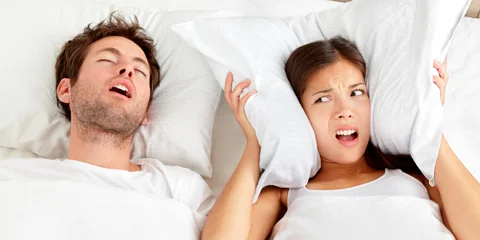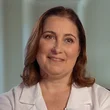This is how our application simplifies the booking and administration process. Interested >>
Screening for Apnea
What is apnea or hypopnea?
Sleep apnea or hypopnea is a type of sleep disorder characterized by pauses in breathing or instances of shallow or infrequent breathing during sleep. As a consequence, during the apnea period the blood oxygen decreases, the pulse rate goes down and the blood pressure falls.
The process is normalized through a stress reaction of the nervous system causing the heart to suddenly speed up and the blood pressure to shoot up. The most common cause of sleep apnea, obstructive sleep apnea, is the collapse of the upper airways (the pharynx and nasal cavities) when breathing in.
As the muscles relax during sleep, airway resistance as it were doubles which may be further increased by such local factors as a thicker layer of fat in the neck due to excess body weight, a soft palate, tonsils, a jaw set further back, obstructed nasal breathing, etc.

Why test for apnea
The above phenomena may occur several hundred times during the night. A restful sleep becomes impossible and the resulting constant stress can cause permanent damage to the body. Special attention should be given to patients with high blood pressure, coronary heart disease (5x at risk of heart attack), cerebral circulation disorders (2-3x at risk of stroke), heart rhythm disorders, etc.
Expected results
Solving the sleep problems will bring about significant improvement in the patient’s quality of life. The patient will no longer fall asleep at the wheel, will be able to take part in physical activities after work causing a change in life style, weight loss and improved metabolic parameters.
Who performs the examination
After seeing your internist, cardiologist, otolaryngologist or gastroenterologist may refer you to a sleep specialist for an apnea screening examination. The examination is of special importance for those who spend many hours behind the wheel.
A sleep specialist should be consulted with following symptoms:
- spasmodic, uneven snoring
- heavy perspiration during the night, restless sleep
- impotence
- do not feel rested in the mornings, dry mouth, headaches
- increased desire to sleep during the day
- concentration problems
- deteriorating physical capacity
- weight gain
The Screening Examination
The examination is entirely painless. The patient spends a night with a pressure cannula in the nose, a pulse oximeter on a finger and a recorder on the chest. The patient receives the unit preassembled together with instructions for its application when retiring for the night.
Evaluating the results
The screening device measures the inspirational air flow and takes count of the number of snores while the pulse oximeter measures the blood oxygen providing the following data:
- AHI - the apnea and hypopnea index,
- apnea = breathing without inspirational flow, or a 0-20% decrease in airflow,
- hypopnea = breathing with inadequate air flow, that is decreased airflow (lasting for 10 seconds or more) and,
- blood oxygen saturation
Evaluation
It is internationally recognized abnormal when breathing stops for more than 10 seconds. Since this occasionally occurs in healthy individuals also, it is necessary to include the frequency. An AHI above 5 per hour is considered abnormal. The lowest saturation data, as well as abnormal oxygen desaturation, calls for further examination and treatment.
A somnological examination is warranted if the AHI is greater than 10/h or the desaturation below 90% during the night is more than 5 min.
Examinations that should preclude an appointment with a somnologist.
EKG and laboratory tests as well as a spirometry test to check the movement of air into and out of the lungs will be required. Since the cause is most often an upper respiratory tract problem, a maxillary sinus x-ray should be taken. We also have three questionnaires to be filled out before seeing a somonologist.
Feel free to contact our specialists!
At the Buda Health Center, you have the opportunity to attend the private practices of more than 300 renowned specialists, offering expertise in nearly 45 medical specialisms, at five locations. Personalized care is provided by a well-trained and empathetic staff of professionals, who have been working together for a long time. Based on our 24 years of experience and the feedback received from our 450,000 clients, we are constantly working to organize our healthcare services in the most efficient way possible for those who visit us, paying respect to their needs and time.
Book an appointment on weekdays between 08:00 and 20:00 on +36 1 489-5200!

